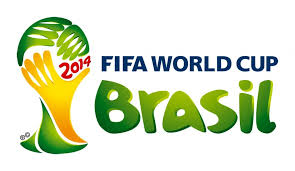According to Lt. Cmdr Tyler Sharp, epidemiologist with The Centres for Disease Control, CDC, Brazil, host country to FIFA 2014 has reported the most cases of dengue fever for the past 30 years. However, there have only been four deaths attributed to the mosquito-borne illness. The CDC says that some areas of Brazil are high-risk for dengue fever for tourist visiting for the World Cup.
And according to the epidemiologist, the statistics suggest that fans could be at great risk of contracting the sometimes fatal illness.
“It’s difficult for anyone to put any number on the level of risk. The important thing to remember is that all regions of Brazil every day, every week and every year have transmission of dengue”, said Sharp, an epidemiologist at the CDC’s dengue branch in San Juan, Puerto Rico.
Dengue is a virus carried by the mosquito which is also responsible for the fast spreading chikungunya virus in the Caribbean. According to the epidemiologist, tourist in air-conditioned hotel rooms are at less risk to get dengue but those staying in and around private homes that are being rented to tourists may be at higher risk for infection. Breeding sites tend to be in the environs of homes e.g. backyards, old tyres, plant pots and must be eradicated to remove the risk.
The Pan American Health Organization (PAHO) also says that a poor water and sanitation problem, poor sewage disposal as well as water supply issues in residential areas are all key to the heightened dengue risk in Brazil.
According to reports, an analysis published in Lancet Infectious Diseases last month looked at the climate for dengue fever during the 2014 World Cup. Researchers analyzed past behaviour of the virus to determine high-risk areas. The CDC has also indicated that Brazil travelers should also protect themselves against hepatitis A and B, yellow fever, typhoid, meningitis, malaria, rabies and diarrhea according to reports.
Areas in Brazil that have been identified as “high-risk” include of Recife, Fortaleza and Natal and many matches are being played in these areas.
We are safe – says Brazil
However, the Brazil Federal Government has said that the matches will be held during a time of year where there is a 74% reduction in dengue fever.
“The one thing in our favour is that it is winter in Brazil,” Sharp told CNN news.
Symptoms of dengue are much like those of chikungunya and include high fever, severe headaches, muscle and joint pain, nausea, pain behind the eyes, headache, vomiting and swollen glands. In chickungunya, joint pain can last up to two years in severe cases and the symptoms are similar. Dengue, however, is potentially fatal.
Individuals with diabetes, obesity, cardiovascular disease or asthma have a higher risk of developing a more severe illness if infected by dengue as well. People who are older or have had previous exposure to one of the four dengue strains are also more at risk.














